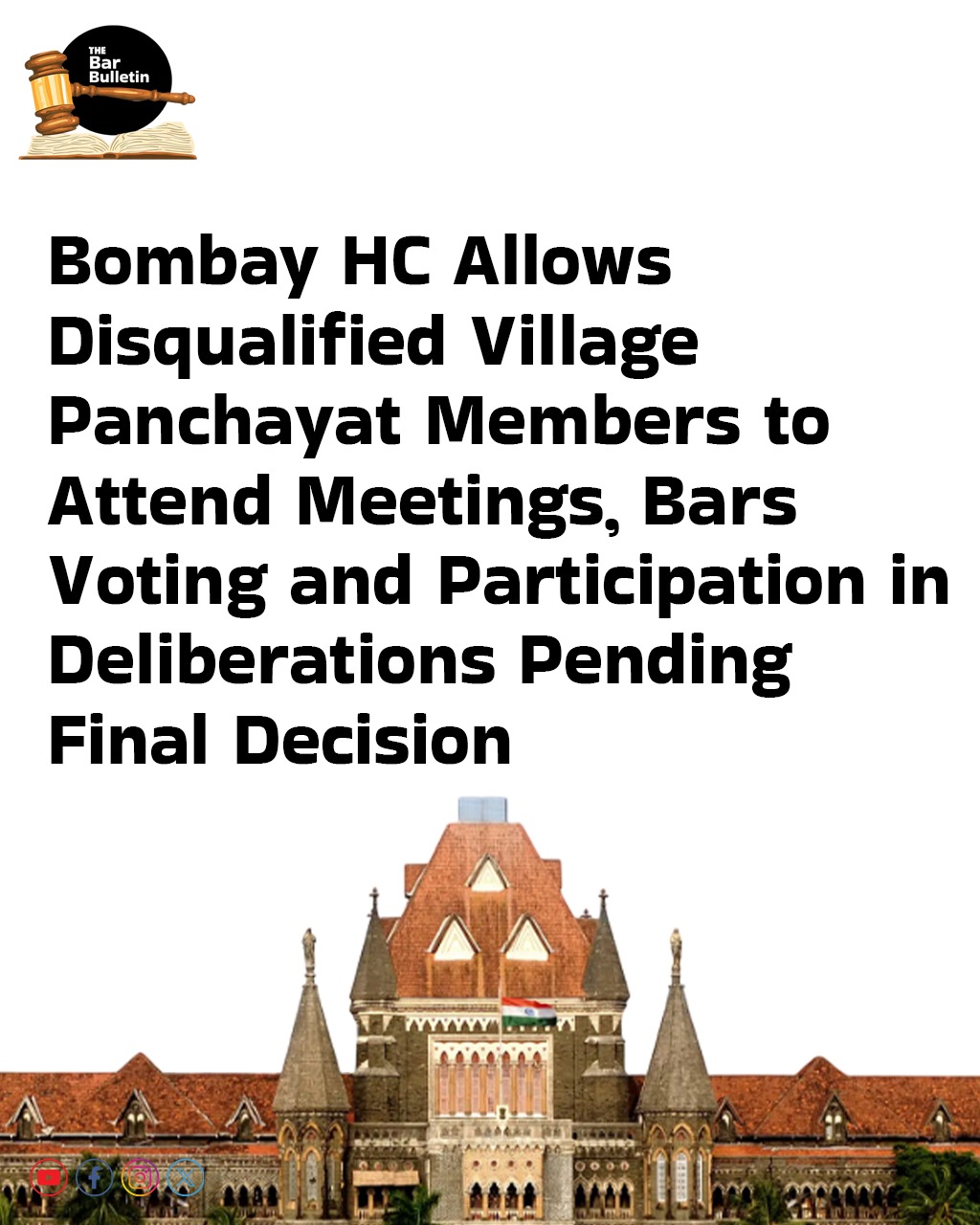The Bombay High Court (Goa Bench), in a writ petition, addressed the legality and implications of a stay order granted by the District Court in revision proceedings against the disqualification of four elected Village Panchayat members of Rumdamol, Davorlim, Salcete, Goa. The members had been disqualified by an order of the Block Development Officer (BDO) for participating in decisions involving their close relatives’ illegal constructions, triggering disqualification under the Panchayat Raj Act.
The District Court had stayed the operation of the disqualification order for twenty days. The petitioner challenged this stay, seeking to restrain the disqualified members from participating in Panchayat meetings or decision-making during the pendency of the revision.
The petitioner, as a complainant before the Village Panchayat, had filed applications alleging that Respondent Nos. 1 to 4, who are elected ward members related to persons involved in unauthorized constructions, had incurred disqualification by taking part in meetings where matters concerning their relatives’ illegal structures were resolved. The BDO held these members as disqualified under Section 55(4) read with Section 12(1)(d) of the Goa Panchayat Raj Act. The District Court granted a stay of this disqualification without imposing restrictions on their participation in Panchayat affairs,
The petitioner contended the District Court’s order as amounting to wrongful interference with the Panchayat’s functioning and election process. The respondents argued that the stay was granted after due consideration, based on lack of prima facie findings on pecuniary interest, and that as democratically elected representatives, they should not be dislodged without conclusive proof. Their case relied on established precedents allowing stay of disqualification orders pending appeal or revision.
The Bench comprising Justice Valmiki Menezes undertook a detailed review of relevant case law, including landmark judgments on the effect and scope of stays of disqualification orders such as Indira Nehru Gandhi vs Raj Narain[1]. He emphasized that while courts may stay disqualification, such stays usually come with conditions limiting the disqualified members’ ability to deliberate, vote, or receive remuneration, preserving the Panchayat’s proper functioning.
The Court observed that the disqualification arose from the members’ participation in resolutions concerning complaints of illegal construction by their relatives, a clear case of pecuniary interest triggering disqualification. The absence of restrictions on their participation while the stay persists would negate the purpose of disqualification and undermine governance and legality.
Accordingly, the High Court modified the stay order granted by the District Court. It upheld the stay itself but imposed conditions that, during the pendency of the revision petition, Respondent Nos. 1 to 4 may attend Panchayat meetings and sign the attendance register but shall not participate in deliberations, discussions, vote, or exercise any decision-making powers. The Court also urged the District Court to expedite hearing of the revision petition to prevent prolonged ambiguity and governance paralysis in the Panchayat.
The Court made the rule absolute with no order as to costs and ordered communication of the decision to the District Court for compliance.
Appearances:
For the Petitioner: Mr. Gaurish Agni with Mr. Kishan Kavlekar, Advocates
For the Respondent Nos. 1 to 4: Mr. Parag Rao with Mr. Jay Mathew, Advocates
For the Respondent Nos. 7 and 8: Mr. Devidas Pangam, Advocate General with Mr. Tukaram Gawas, Additional Government Advocate
[1] (1975) 2 SCC 159
![]()



